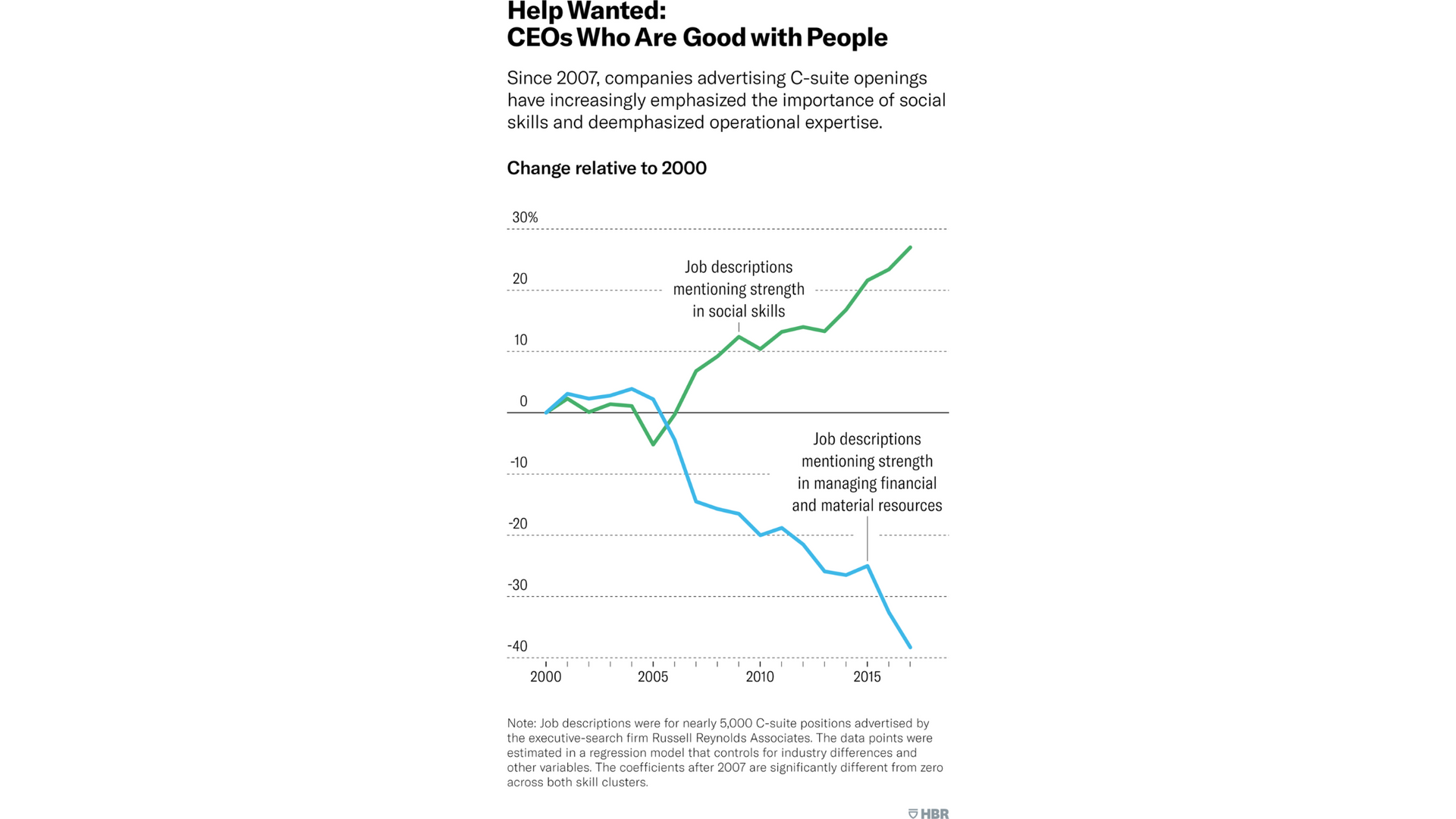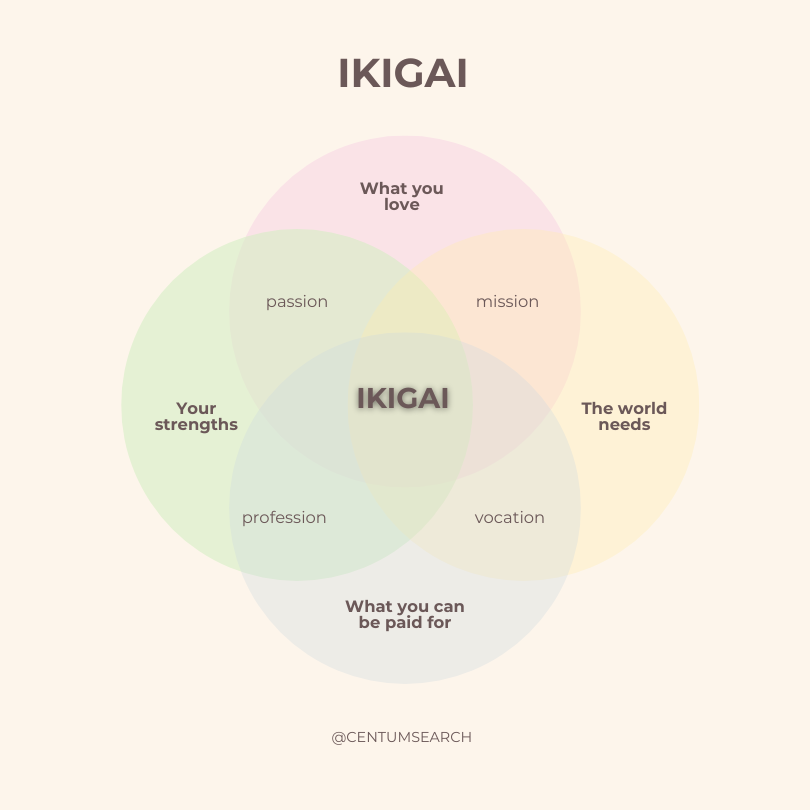Top 5 Soft Skills for Executives and Rising Leaders
Over the past decade, corporate hiring has shifted significantly. Companies hiring for all levels, particularly when selecting C-level executives, are increasingly valuing soft skills while deemphasizing operational expertise. This trend is highlighted in Harvard Business Review's analysis, "The C-Suite Skills That Matter Most," which emphasizes the growing importance of interpersonal abilities in high-level roles.

While technical skills and industry knowledge remain essential, soft skills such as collaboration, innovation, and the ability to drive complex initiatives forward are becoming key differentiators in identifying top talent. These competencies allow leaders to effectively navigate the corporate environment and catalyze organizational growth.
According to a 2017 report by Deloitte, occupations that require a high level of soft skills are expected to make up two-thirds of all jobs by 2030. The report further suggests that investing in employees with robust soft skills can significantly enhance revenue generation, positioning companies better within their markets.
Executives and aspiring leaders who excel in critical areas such as communication, emotional intelligence, adaptability, problem-solving, and team leadership are increasingly recognized as pivotal to achieving long-term success.
This article delves into these essential skills, backed by compelling statistics and real-life examples, to demonstrate their impact on effective leadership and organizational achievements.
1. Effective Communication Skills are pivotal for any leader, and it requires listening as well as speaking. Not only is it about exchanging information, more importantly, it’s understanding the emotion and intentions behind the information.
A study by McKinsey found that poor communication leads to project failures and substantial financial losses in 18% of cases.
For instance, Elon Musk's ability to clearly articulate the mission and vision of Tesla has been integral to the company's public image and internal cohesion. Executives must be able to convey complex ideas clearly and motivate their teams through effective dialogue.
Recommended resources:
TED Talk:
How your brain responds to stories – and why they’re crucial for leaders, by Karen Eber
Book:
Everyone Communicates, Few Connect: What the Most Effective People Do Differently, by John C. Maxwell
2. Emotional Intelligence (EQ) refers to the ability to identify, understand, and manage one’s emotions and the emotions of others. EQ plays a significant role in leadership effectiveness as it enables stronger communication, empathy, and ultimately the ability to overcome challenges with team members.
According to TalentSmart, EQ is responsible for 58% of performance in all types of jobs, and 90% of top performers are high in EQ.
A renowned example is Satya Nadella, CEO of Microsoft, whose leadership style emphasizing empathy markedly improved Microsoft’s culture, leading to increased innovation and profitability.
Recommended resources:
TED Talk: The Art of Managing Emotions Speaker: Daniel Goleman
Book: Emotional Intelligence: Why It Can Matter More Than IQ by Daniel Goleman
3. Adaptability is a non-negotiable skill in the fast-paced corporate world. Research by the Economist Intelligence Unit reveals that companies led by adaptable executives are 45% more likely to report market share growth and 56% better at improving operational efficiency.
This was evident when Adobe shifted from traditional software sales to a cloud-based subscription model under the leadership of Shantanu Narayen, navigating the company through significant industry changes.
Recommended resources:
TED Talk: 3 ways to measure your adaptability - and how to improve it Speaker: Natalie Fratto
Book: Adaptability: The Art of Winning in an Age of Uncertainty by Max McKeown
4. Problem-Solving Abilities are crucial for navigating the challenges of today's business landscape. A PwC survey highlights that 77% of CEOs believe problem-solving is crucial for future success.
Apple’s Tim Cook exemplifies this skill, steering the company through various supply chain and regulatory challenges while maintaining its reputation for innovation and quality.
Recommended resources:
TED Talk: 5 steps to fix any problem at work Speaker: Anne Morriss
Book: Problem Solving 101: A Simple Book for Smart People by Ken Watanabe
5. Team Leadership is the ability to lead and inspire a team is what separates good executives from great ones. According to Gallup, companies with highly engaged teams show 21% greater profitability.
Mary Barra, CEO of General Motors, is known for her team-centric approach, which has been crucial in the company's drive towards electric vehicles, showcasing the power of effective team leadership in achieving corporate goals.
Recommended resources:
TED Talk: How great leaders inspire action Speaker: Simon Sinek
Book: The Five Dysfunctions of a Team: A Leadership Fable by Patrick Lencioni
In conclusion, the correlation between soft skills and executive success is undeniable. As the business world continues to evolve, these skills become even more essential. Leaders who master these areas not only drive their organizations forward but also foster work environments that attract, develop, and retain top talent. For executives looking to sharpen these skills, targeted training programs, mentorship, and practical experience are invaluable.
Subscribe to our newsletter!
Resources for Careers, Talent Acquisition and Management



